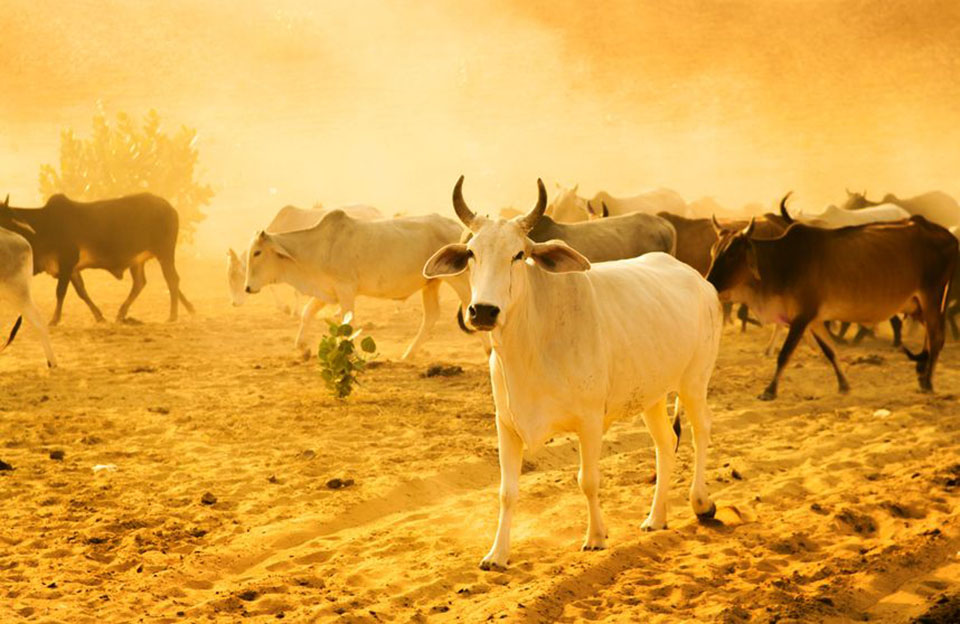Cattle trade ban
May 30, 2017 | Expert Insights

On 29 May 2017, the countrywide protest against the Centre's notification banning the sale of animals for slaughter at livestock markets and animal fairs grew louder, with Chief Minister Mamata Banerjee saying West Bengal will not implement the new rules and Kerala writing to all CMs to oppose the new regulations.
The move was described "undemocratic, unconstitutional and unethical", Banerjee said the state will seek a review by the Supreme Court, if needed. The Puducherry government too raised the standard of dissent, saying it will not implement the ban and passed a resolution in the assembly to register its protest against the notification. The move has also caused consternation in the Christian-majority states of Meghalaya and Nagaland.
Saturday’s slaughter seems to have backfired
On 28 May 2017, police in Kannur in North Kerala booked 16 Youth Congress activists who slaughtered a cow in public and cooked its meat and distributed it. They were charged under IPC Section 428 and section (ii) of the Prevention of Cruelty to Animals Act 1960.
Youth groups of the ruling CPI(M)-led LDF and Congress-headed UDF opposition have organised these festivals to protest against the Centre’s recent decision to ban sale and purchase of cattle from animal markets for slaughter, a move criticised by several states.
Analysis
Most of India's beef comes from buffaloes rather than cows and the new ban is expected to threaten $4 billion in annual beef exports. Locals allege however, that many of them did not kill cows, but animals like goat and buffalo, the slaughter of which is legal. The narrow, dingy lanes of Ghaziabad's Islam Nagar house nearly 100 meat shops, but now all of them are shuttered. Both the owners and workers of the shop are sitting at home, unsure about how they will feed their families in the days and weeks to come. The Karnataka government said it would weigh all options to challenge the ban in court. Mamata said the Centre's move infringed upon the rights of states.
The decision has affected the village economy. Several states have expressed their opposition to the ban, but the Tamil Nadu government is silent on it, and it is condemnable.
Assessment
The centre is taking decisions unilaterally. The government should have passed the rule on ban slowly to avoid the protest, the drastic decision has led to the protest. The ban should be taken off for time being, since all the farmers & butchers will lose their job and will face many difficulties. If the ban on cattle trade is to be passed, it should be done gradually, with a prior notice, keeping in mind the condition of the people.








Comments